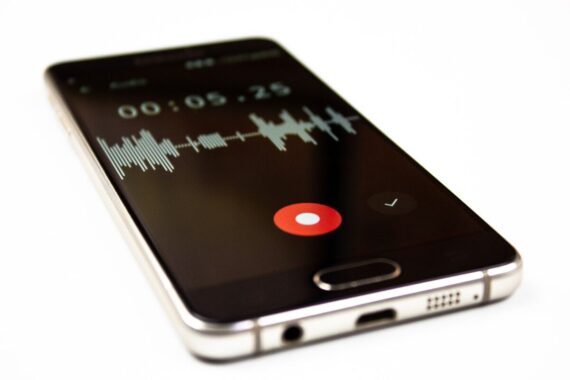GPs advised to ‘openly’ allow patients to record consultations

GPs should allow patients to record consultations ‘openly and consensually’, as this ‘fosters trust’, according to new guidance.
Lincolnshire LMC published a document to help GP surgeries navigating the ‘growing trend’ of patients requesting to record consultations.
It said that patients are ‘increasingly using smartphones and other devices to record their interactions with healthcare professionals’, so there should be ‘clear practices’ that respect patient rights and doctor privacy.
GPs should openly allow the recordings and a copy should also be stored in their medical records, the LMC said.
This follows BMA guidance for all doctors which also supported consensual recordings.
The union also said that in some circumstances, permitting a patient to record a consultation, who may otherwise ‘struggle to remember or understand’, is likely to amount to a reasonable adjustment requirement under equality legislation.
The LMC guidance said: ‘Patients increasingly request to record consultations, which can benefit both them and doctors. Recordings can help patients recall important advice, involve family members in their care, and support those with memory or cognitive impairments.
‘It’s advisable to allow these recordings openly and consensually, as it fosters trust and reduces the likelihood of covert recordings.
‘When a patient requests to record a consultation, it’s best to support the request. Invite the patient to record openly and ask for a copy to be stored securely in their medical records.’
The LMC said that while patients have the right to record, doctors have ‘a reasonable expectation of privacy’ and patients should seek consent ‘out of courtesy and respect’.
It added: ‘If you’re concerned about being recorded, discuss your concerns with the patient sensitively.
‘Explain that your primary aim is to provide the best care possible, and clarify that recordings are often used to aid understanding, not to catch mistakes. Reassure them about the secure handling of the recording.’
GPs discovering that a patient has made a covert recording, should ‘remain professional’ and understand that ‘usually doesn’t indicate malicious intent’.
‘If you consistently act ethically and professionally, such recordings should not pose a problem,’ the LMC added.
And GPs’ duty of care requires them to continue treating the patient, even if they insist on recording against the GP’s preference.
‘Refusing to do so could damage the relationship and might be seen as unprofessional, potentially leading to further complications,’ the guidance said.
The BMA agreed with this and said that medical bodies do not advise doctors to end the consultation and refuse to treat the patient.
‘You are entitled to point out that a recording without your agreement will engage your privacy rights,’ it added.
The union also pointed out that where doctors become aware that recordings of them are posted online, and they did not agree to either the recording or posting, they ‘are entitled to request they are taken down’.
It added that medical defence organisations suggest that where legal cases arise, ‘most recordings actually support the actions of doctors’.
Last year, a GP practice receptionist was cleared of harassment and discrimination after a patient made a covert recording of the telephone conversation.
Pulse October survey
Take our July 2025 survey to potentially win £1.000 worth of tokens

Related Articles
READERS' COMMENTS [6]
Please note, only GPs are permitted to add comments to articles










Consent and human rights work both ways. We need to remember that the doctor is a human with rights too. To give patients the ability to use the video for demonstrations showings without paying any royalty and exposing the GP to the risk of clips being used out of context or in deep fakes is plain silly. The doctor’s risk is most certainly increased. We all know not everyone uses the NHS properly and there a re a lot who abuse the system. I really do not feel comfortable or see the need for this.
So in essence what the BMA guidance is saying is that GPs have no right to privacy. A rather shocking stance. I value and guard my privacy and if a patient did a covert recording without my consent, I should have every reason to be upset. It would clearly affect my relationship with them and not providing ongoing care should be acceptable in these circumstances. The belief that most recordings especially covert recordings are not malicious is absurd. Why would a person do that unless there is some degree of malicious intent? It would be extremely rare for recordings to be for any knowable legitimate reasons and in such cases if a GP declines to agree, the patient should respect the doctors wishes. They would also be free to see another gp as an option who may be more liberal with their privacy. The BMAs view is clearly wrong on this.
No
We’re not flippin’ callcentre workers. Recording consultations would actually have the opposite effect and undermine trust. Which Dr or pt wouldn’t change their behaviour in the interaction? Recording would destroy the private, occasionally confessional, nature of the encounter and therefore the art and skill of general practice as I’ve known it.
Call me a pessimist….but data corporates would eventually get access and this would forespell machine-learning AI enclosing general practice to profit from capital accumulation in this new virtual land grab…Siri will see you now…
Can’t the LMC and/or the BMA see this?
I disagree. I don’t want my consultations recorded. Just another reason to stop being a GP. What an awful job it became
I consult knowing that everything I say and do may be recorded. There may be some advantages to the patient but fundamentally if someone refuses permission to be recorded that should be sacrosanct. If a patient who has capacity refuses treatment we ultimately have to respect that. In the end we are all humans with the same human rights.